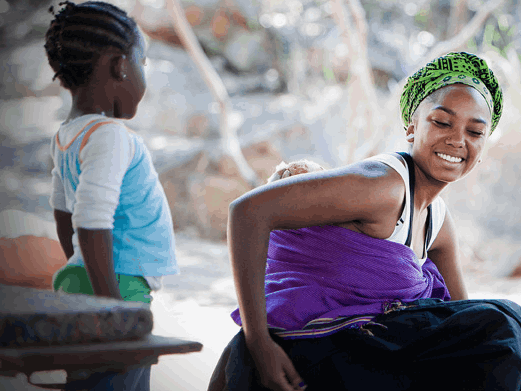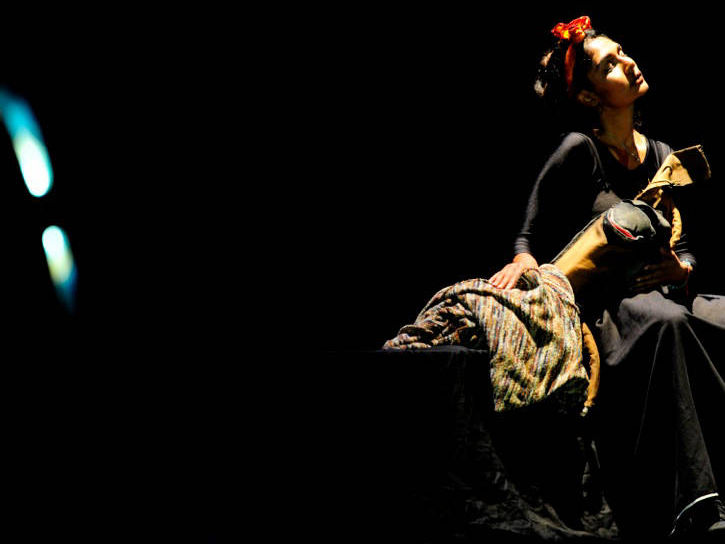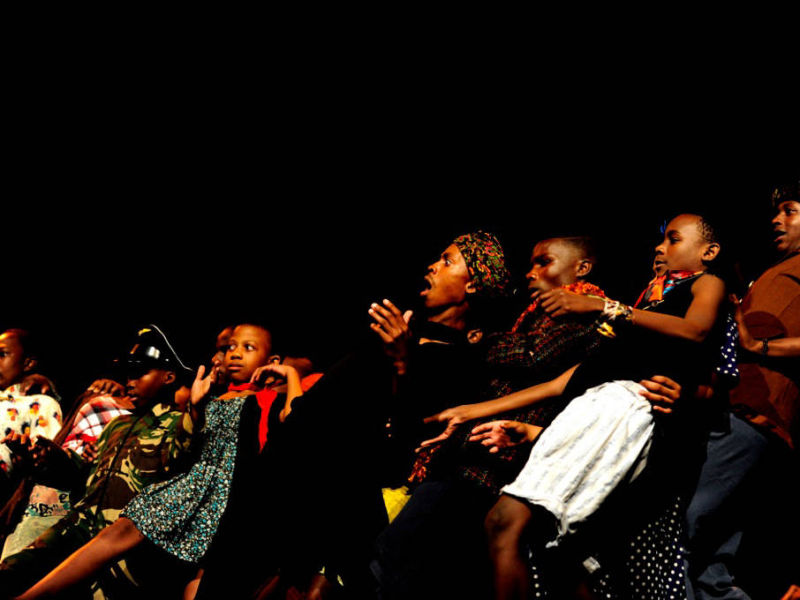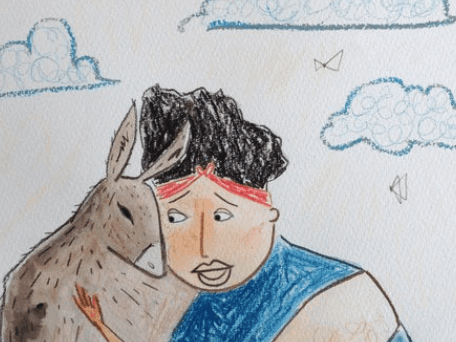



The Donkey Child
The story of The Donkey Child begins in Grahamstown (now known as Makhanda) when Lindiwe was a drama student at the University (still referred to as Rhodes) there. Noticing the presence of donkeys all over town and how various towndwellers interacted with them, Lindiwe began to write a tall tale in which a woman gives birth to a donkey. Initially envisioned as a children's story, extracts from the original text were first performed as a solo performance. In 2013, in partnership with Hillbrow Theatre Project, Lindiwe facilitated a group of 40 young people, children and professional artists - Noluthando Lobese, Vishanthi Arumugam, Daniel Buckland, João Renato Orecchia Zúñiga, Siya Makuzeni and Siyabonga Mthembu - to stage a full theatrical production of the piece, devised specifically for this context around the script she wrote as a starting point. The relationships that developed during this process have endured and many of the original cast and crew members have gone on to do other projects together. The Donkey Child did eventually take shape as a children's book, published online at African Storybook in several languages and with illustrations by Meghan Judge.
(Image credits: Lerato Maduna, Muntu Vilakazi and Meghan Judge)
In 2011, Lindiwe travelled to Paris to work with French theatre company, Lézard Dramatique (LZD), fellow SA artist, Nicholas Pule Welch, and French musician, Dominique Lentin. Together, they devised a production called Ster City, directed by Jean Paul Delore. The show had a very successful run of four years, touring France, South Africa, Lesotho, Mozambique, Angola, Uganda, Kenya, Ethiopia, Djibouti, DRC, Republic of Congo, Benin, Ghana, Mali, Cameroon, Madagascar and Côte d'Ivoire. On the back of that first collaboration, Lindiwe has since worked with LZD consistently, performing in and touring with productions such as Sans Doute and Macbeth Quand Même.
JHB Massive
Described as a kind of supercrew of artists, JHB Massive was formed as a temporary collective of independent artists who joined forces to get to Chale Wote Street Art Festival in Jamestown, Accra. The group mobilised around the idea of communal rather than competitive practices in the Arts, something that felt pertinent at the time in the question of how African artists access and collaborate with other African artists. They formed a central theme - No Condition is Permanent (a direct reference to the Marijata song and its Adinkra origins) - and used it as a mantra for how they organised and fundraised to get to Chale Wote, and what they ended up doing when they got there. The artists involved: Lindiwe Matshikiza, Vishanthi Arumugam, Breeze Yoko, Mushroom Hour Half Hour, João Renato Orecchia Zúñiga, Anthea Moys, Goldendean, Naomi van Niekerk, Mpumelelo Mcata, Tshepang Ramoba, Lavendhri Arumugam, Noluthando Lobese, Nicholas Pule Welch and Siyabonga Mthembu.
JHB Massive: Jozi to Accra was supported by Pro Helvetia Swiss Arts Council, Prince Claus Mobility Fund, the Department of Arts and Culture of South Africa, and hundreds of friends, family members and supporters via the Thundafund crowdfunding campaign.
Desert
In February 2018, Lindiwe was invited to be one of the curators of Season 3 at The Centre for the Less Good Idea. Among her curatorial contributions to the programme was an experimental treatment of her play, Desert, a piece about the mystical nature of grief and the complexities between a father and daughter. Drawing from her own experience, the process incorporated archival objects, writing, images and sounds, some of which formed part of what audiences eventually came to see. Over a process of seven weeks, Lindiwe worked with a team of selected artists - João Renato Orecchia Zúñiga, Boitumelo Moroka, Alexia Webster, Meghan Judge, Mwenya Kabwe, Mncedisi Shabangu, Mele Broomes, Noluthando Lobese and Mmakhotso Lamola - to explore the play as a form that encompassed their individual practices and the spaces in which they intersect. In line with The Centre's mission to incubate experimental work, public performances of Desert during Season 3 were a window onto the process, a first draft of what the piece might go on to be. In her capacity as curator, Lindiwe was also able to invite Malagasy artists, Temandrota and Naty Kaly, to join the programme through the connection of Meghan Judge and the Africa|Nosy|Art|Exchange (ANAE), supported by Pro Helvetia Swiss Arts Council, as well as Mexican artist, Javier Velázquez Cabrero, whose presence was supported by Acción Cultural Española (AC/E) and The Nirox Foundation.
(Image credits: Zivanai Matangi)